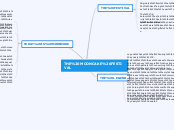THE MOONCAKE FESTIVAL
THE FESTIVAL
This festival falls on the 8th moon, 15th day of the Chinese Lunar Calendar
is a celebration of unity
Originated from the ancient ceremony of Sacrificing to the Moon Goddess for the year's end harvest
The Mid-Autumn Festival is a traditional festivity for both the Han and minority nationalities
In the later dynasties, moon cakes were baked and sent to relatives as gifts of family
reunion.
THE LEGEND
Legend says that during the Yuan dynasty (1279-1368), these cakes were used to convey secret instructions to Chinese patriots concerning the overthrow of their Mongol rulers.
A Mongol spy living in every household, and the only way the Chinese people could communicate with each other was to conceal their messages in moon cakes.
Information about the time and place of the revolution was spread by hiding it on small squares of paper inside
the moon cakes that were sent to friends and relatives during the Mid-Autumn Festival in 1353.
The midnight attack came as a complete surprise and hastened the dynasty's downfall.
WHAT IS MOONCAKE
Moon Cakes (Yüeh Ping) is made of greyish flour to resemble the colour of the moon and often stacked in a pyramid thirteen-cakes high to represent the thirteen months of the Chinese lunar year.
They are round like the moon and filled with melon seeds, cassia blossoms, orange peel, walnuts, date paste, or smashed bean.
They are sent from neighbour to neighbour and exchanged among friends during the festival.
In cities, confectioners make moon cakes and donate them to the poor.
In rural villages, "moon cake societies" are formed to make sure that everyone has an adequate supply of cakes when
the festival arrives.
While most moon cakes are only a few inches in diameter, imperial chefs have made them as large as several feet across, decorated with images of the moon palace, the
cassia tree, or the rabbit.
